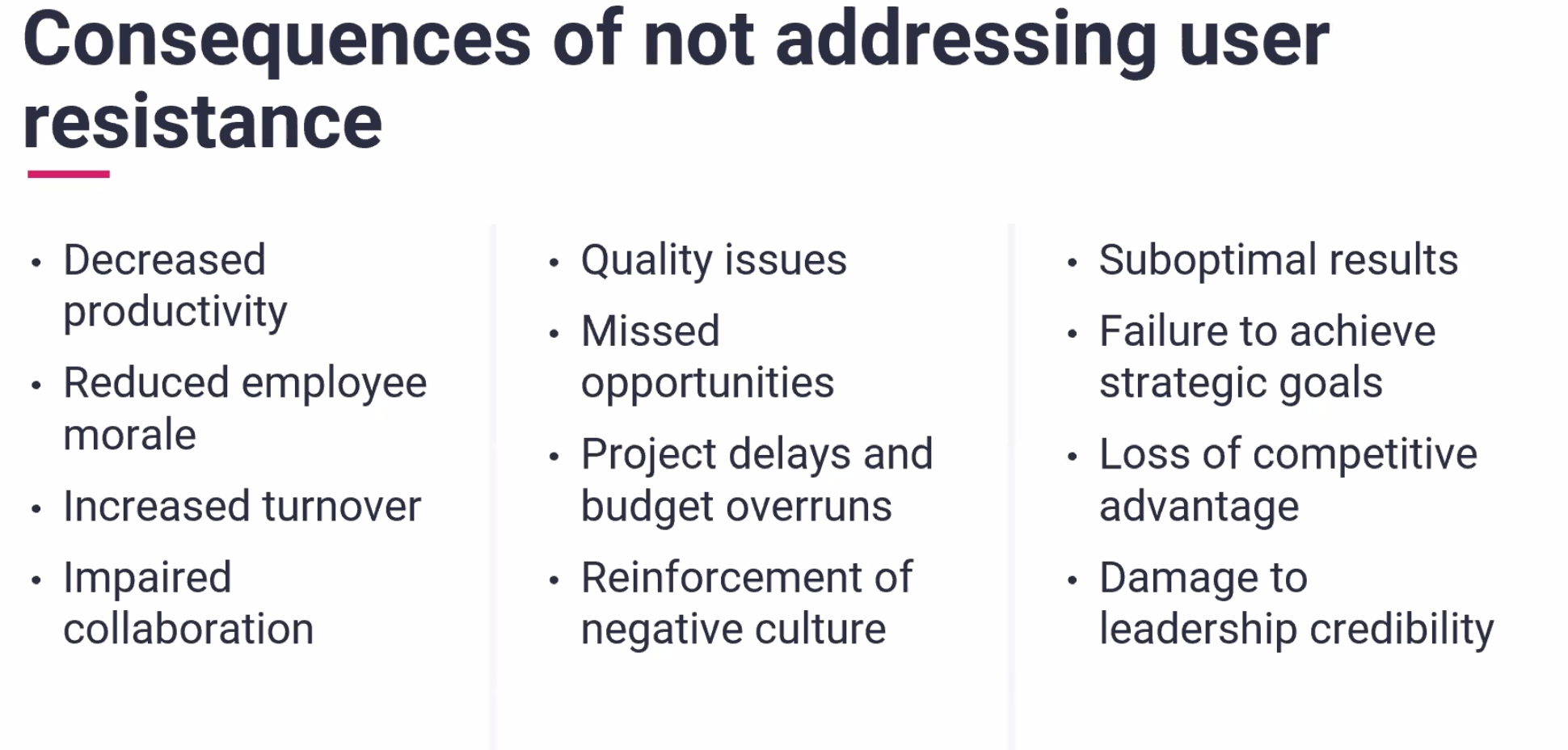Related: navigating-change-management-in-labs
Main Idea
People don’t trust leaders who can’t prepare an organization for change.
Resistance doesn’t look the same for everyone. It’s commonly expressed in one of two ways: active or passive.
- active: finding fault, appealing to fear, meeting with leaders to prevent the change
- passive: withholding information, weaponized incompetence/feigning ignorance
Ignoring user resistance is NEVER the solution!! If you ignore it, you risk facing long term consequences anywhere from reduced quality/productivity to hostile working environment. People don’t trust leaders who can’t prepare an organization for change.
Here are some examples of the consequences if you ignore user resistance.

There are ways to shorten and lessen the impact of this reaction - most of it boils down to these points:
- open and consistent communication
- encouraging healthy debate and addressing concerns
- before a change, tell people the rational behind the decision (back up with numbers when possible!)
- take on Agile mindset for implementing changes, monitoring progress, and incorporating feedback